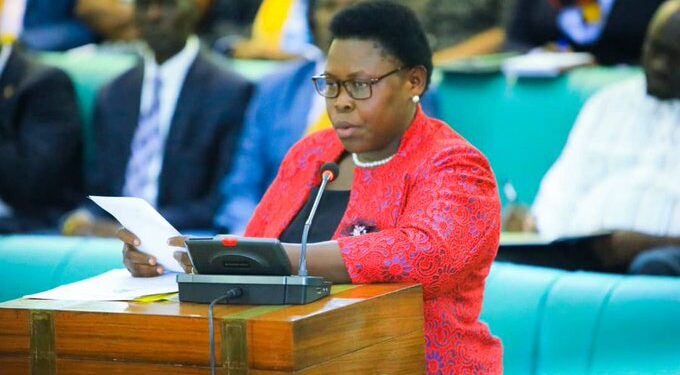In a candid address to Parliament on Wednesday, the Minister of State for Primary Education Moriku Kaducu emphasised a critical reality that the government currently lacks the authority to impose sanctions on schools charging exorbitant fees.
She provided insights into the challenges faced by the Ministry of Education in regulating fee structures and enforcing compliance among educational institutions.
Moriku emphasized that the lack of statutory authority poses a significant hurdle in the government’s ability to sanction schools charging exorbitant fees. Despite issuing directives and guidelines to schools regarding fee structures, the absence of robust legal provisions undermines the enforcement of these measures. This loophole has allowed many schools to continue operating with impunity, exacerbating the financial burden on families striving to afford quality education for their children.
Highlighting ongoing efforts to rectify this situation, Moriku outlined plans for a comprehensive framework aimed at promoting universal free education. This initiative, supported by substantial additional funding, seeks to alleviate the financial strain on parents by covering essential educational expenses previously shouldered by families. The proposed framework is poised to usher in a new era of accountability and transparency in fee management across all educational institutions.
Moreover, Moriku stressed the importance of stringent regulations to curb arbitrary fee hikes. Under the proposed framework, schools, both private and government-aided, will be required to seek written authorization from the Ministry before adjusting their fee structures. This measure aims to prevent unjustified fee increases and ensure that educational expenses remain reasonable and affordable for all stakeholders.
In addition to addressing fee structures, Moriku outlined measures to control ancillary costs associated with schooling. Schools will be prohibited from imposing extraneous cash and non-cash requirements outside the approved fee structure. Instead, all expenses, including non-monetary items, must be transparently accounted for within the school budget. By curbing these additional costs, the government aims to relieve financial pressure on parents and promote equitable access to education for all students.
Furthermore, Moriku underscored the importance of rationalizing staffing costs in public schools. The practice of hiring teachers outside the government payroll contributes significantly to fee escalation, burdening parents with additional expenses. The Ministry’s directive to public schools to refrain from employing teachers not accounted for in the government payroll seeks to mitigate this cost driver and promote fiscal responsibility within the education sector.
Overall, Minister Moriku’s address to Parliament highlighted the urgent need for comprehensive reform to address exorbitant school fees and ensure equitable access to quality education for all students. Through strategic policy interventions and enhanced regulatory measures, the government aims to create a more transparent and inclusive educational system that prioritizes affordability and accessibility.
Do you have a story in your community or an opinion to share with us: Email us at editorial@watchdoguganda.com













